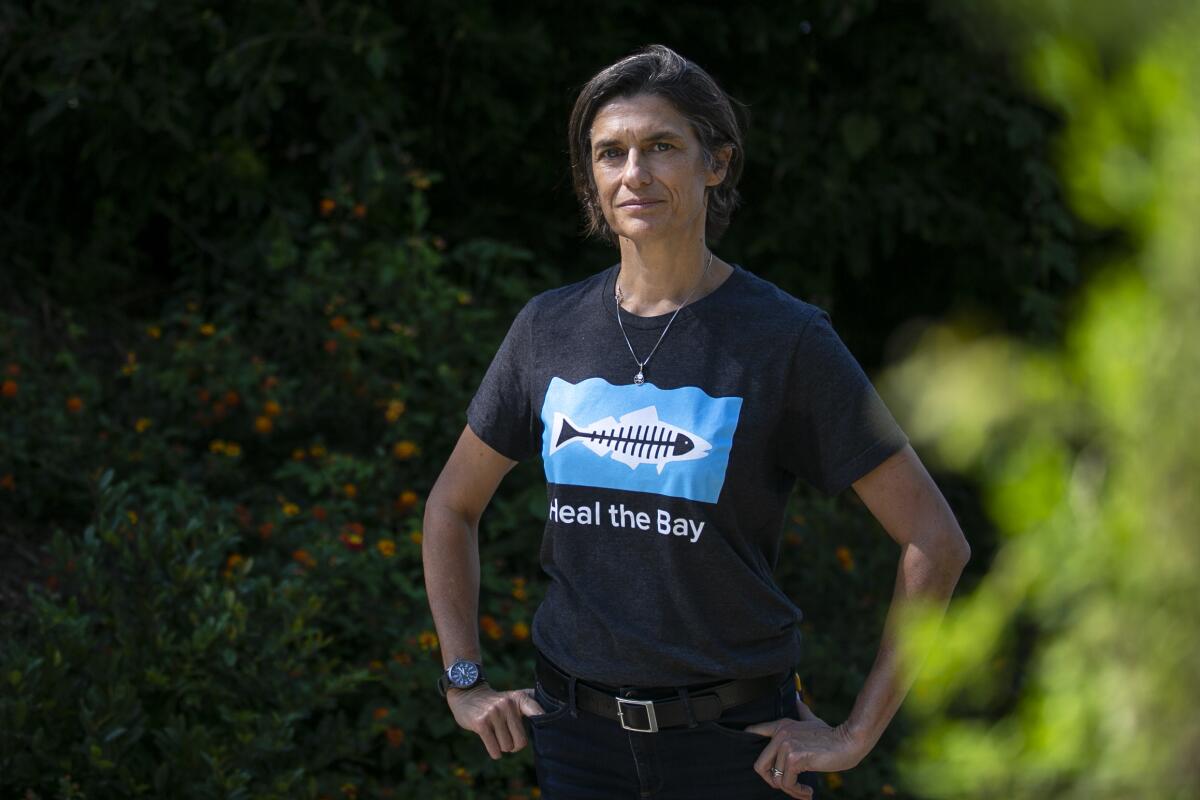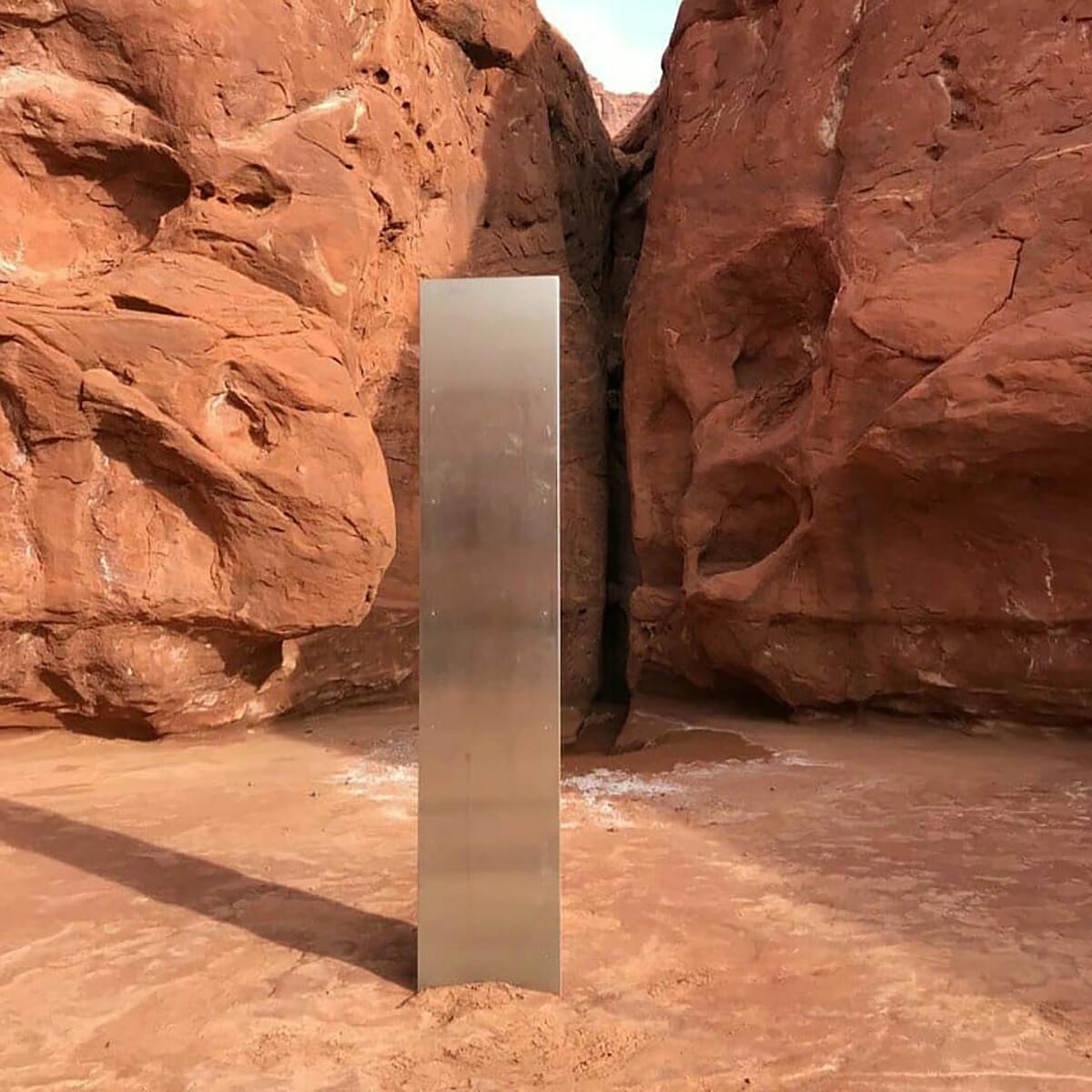Boiling Point: In the West, opposing natural gas is tricky — even for a Democrat with climate cred
- Share via
This is the Nov. 26, 2020, edition of Boiling Point, a weekly newsletter about climate change and the environment in California and the American West.
This week, the Los Angeles Times published a story I’ve been working on for months. It’s about efforts by fossil fuel companies and their allies to claim the moral high ground by casting the industry as an ally of communities of color, even as its products fuel a global crisis that disproportionately harms people who aren’t white.
It’s a nuanced story that focuses on defenders of oil and gas, examining who funds them and scrutinizing their claims about fossil fuels being good for the pocketbooks of people of color. I took a hard look at groups including United Latinos Vote and Western States and Tribal Nations, and companies including Sempra Energy and Dominion Energy.
I hope you’ll read the story and share it, and let me know what you think.
Toward a more sustainable California
Get Boiling Point, our newsletter exploring climate change, energy and the environment, and become part of the conversation — and the solution.
You may occasionally receive promotional content from the Los Angeles Times.
As much information as we packed into the piece — which was probably a bit longer than my editors would have liked — there was plenty of stuff that didn’t make the final version, not because it wasn’t newsworthy but because it didn’t have to do with the question of how the fossil fuel economy affects people of color.
Fortunately, I’ve also got this newsletter. So here are a few other things I learned in the course of my reporting, all dealing with natural gas and the energy transition in the American West.
A tricky balancing act for New Mexico
I reported in the story that the pro-gas advocacy group Western States and Tribal Nations arranged for the chair of the Ute Indian Tribe and three U.S. governors — including New Mexico’s Michelle Lujan Grisham — to write a letter to the Mexican government in support of a $1.9-billion natural gas export facility proposed by Sempra Energy in Baja California.
Two of the governors, Utah’s Gary Herbert and Wyoming’s Mark Gordon, are Republicans and staunch fossil fuel supporters, although they’ve both acknowledged the risks posed by global warming. I wasn’t surprised either of them signed the letter.
But Lujan Grisham’s signature caught my attention because the New Mexico governor is a Democrat who has touted her commitment to fighting the climate crisis.
Lujan Grisham signed a bill last year requiring her state to get 100% of its electricity from climate-friendly sources by 2045. She spoke about global warming at the Democratic National Convention, appearing from a solar farm and saying that her state “has shown what climate leadership looks like.”
New Mexico is also a big oil and gas producer, with fossil fuel taxes and royalties accounting for a significant chunk of the state’s budget. Expanded overseas markets for U.S.-produced gas could be an economic boon for the Land of Enchantment.
Lujan Grisham’s press secretary, Nora Meyers Sackett, told me in an email that the governor “remains absolutely committed to her climate agenda for New Mexico, including the development of renewable energy.”
But Tom Singer, a senior policy advisor at the Western Environmental Law Center, said he was “dismayed” by the Lujan Grisham’s administration’s decision to join Western States and Tribal Nations.
“We just felt it was really a mistake for the governor to get into the role of promoting markets for gas,” Singer said. “We would like to see her promoting the diversification of New Mexico’s economy away from dependence on oil and gas.”
One opportunity for diversification? Tapping more of the state’s abundant wind energy potential. Los Angeles City Council approved a contract last month to buy power from a New Mexico wind farm, as have several other California electricity providers.
Dominion Energy is worried about gas bans
Since last year, nearly 40 California cities and counties have banned or discouraged gas hookups in new buildings. The trend has rattled gas companies across the country. Lawmakers in Arizona, Louisiana, Oklahoma and Tennessee approved industry-backed legislation this year prohibiting local governments from banning gas.
The next state to join the list might be Utah, where the Salt Lake Tribune’s Brian Maffly reports that a committee of lawmakers advanced a bill last week outlawing local gas bans, even though no city or county has attempted to implement one thus far.
What does this have to do my latest story? Well, one of the funders of Western States and Tribal Nations is Virginia-based Dominion Energy, which a few years ago acquired Utah’s largest natural gas utility as part of a $4.4-billion transaction. The acquisition also included Wexpro, a gas exploration and production firm with operations in Colorado, Utah and Wyoming.
In a recent webinar hosted by the Southern Gas Assn. — video of which was obtained by the Climate Investigations Center, a fossil fuel industry watchdog group, and shared with me — a Dominion Energy executive was asked whether he foresaw local gas bans spreading from California to other parts of the country.
“Unless we do something about it, they will spread,” said Donald Raikes, the company’s president of gas distribution.
Dominion corporate didn’t respond to my requests for comment about its membership in Western States and Tribal Nations.
Don Porter, a spokesman for Dominion’s Utah utility subsidiary, did tell me the company supports the bill outlawing local gas bans, at least so far. He also said in an email that the company will begin testing a blend of clean-burning hydrogen and natural gas at a facility in Salt Lake City next year, “with the goal of further reducing carbon and other emissions at the burner tip.”
“We’re a company in favor of an all-of-the-above approach to providing safe, reliable, clean energy to our customers,” he said.
Like Sempra, Dominion is one of the country’s largest power companies. The company sold its gas pipeline business to Warren Buffett’s Berkshire Hathaway Energy this year but remains invested in fossil fuels.
Should environmental groups take gas industry money?

Another company featured in my story is Sempra subsidiary Southern California Gas Co., the nation’s largest gas utility. I wrote about why the environmental justice nonprofit Pacoima Beautiful decided to stop accepting SoCalGas funding.
It’s not the only group to make that choice. Santa Monica-based Heal the Bay also said in August that it would no longer take gas company money, with Chief Executive Shelley Luce writing that my earlier reporting “made it clear that SoCalGas will not take the actions necessary to phase down the consumption and distribution of gas unless they are compelled to do so.”
The same day, Heal the Bay announced its support for shutting down a SoCalGas storage facility that abuts the Ballona Wetlands Ecological Reserve. It’s the same type of underground storage field as Aliso Canyon, site of a record-breaking gas leak a few years back, only much smaller.
“It is up to us as an environmental advocacy group to hold [SoCalGas] and our public officials accountable,” Luce wrote.
SoCalGas spokesman Chris Gilbride told me the company “has valued our 30+ year relationship with Heal the Bay, and while we respect the group’s decision, the characterizations in Dr. Luce’s letter concerning our activities on climate change and operational safety are flat-out wrong.”
“SoCalGas is 100 percent committed to helping California meet its climate goals,” Gilbride said in an email.
Here’s what else is happening around the West:
TOP STORIES
It’s Thanksgiving in Southern California, which means we’re facing fire weather again, as my colleague Joseph Serna writes. In an effort to prevent ignitions, Southern California Edison may shut off power to 76,000 customers, Hayley Smith reports. She also reports that in the Angeles National Forest, 17 of 80 historic cabins burned in the Bobcat fire, and it’s unclear whether the community will be allowed to rebuild them. You might also read this heart-wrenching story by Anita Chabria on the blaze that decimated the Eastern Sierra town of Walker last week, killing one person. It was spread by “foehn winds,” Paul Duginski writes.
In Northern California, the Karuk Tribe has been working for decades to manage its ancestral lands through controlled burns. But federal government inertia, liability concerns and a continued failure to recognize traditional ecological knowledge have largely frustrated the tribe’s efforts, as Debra Utacia Krol writes in this deeply reported story for the Arizona Republic.
California regulates planet-warming emissions from 450 industrial facilities and other entities through a market-based climate program called cap and trade. Critics have long argued the program is misguided because it allows refineries and other polluters to keep fouling the air in low-income communities of color, a criticism Julia Rosen explores in this thorough story for Yes! magazine. I found this comment from one of her sources, on environmental justice, to be especially thought-provoking: “If that is not the central lens through which you are developing solutions, then those communities will always be left out.”
Enjoying this newsletter? Consider subscribing to The Times
Your support helps us deliver the news that matters most, and makes newsletters like Boiling Point possible. Become a Los Angeles Times subscriber.
POLITICAL CLIMATE
As the Trump administration winds down, it’s hurrying to finalize environmental rollbacks. Times columnist Michael Hiltzik wrote about several of them, including efforts to open up forests and wildlife areas to logging and drilling. Hiltzik also wrote about steps Joe Biden can take to undo Trump’s rollbacks and move forward on climate. General Motors, meanwhile, is shifting with the political winds by switching to California’s side in a battle with the federal government over tailpipe pollution. Hiltzik, who was busy this week, noted that GM will need something from the Biden administration: enhanced federal subsidies for electric vehicles.

Biden is naming his top lieutenants, and there are climate implications. His choice for secretary of State, Antony Blinken, said recently that rejoining the Paris agreement isn’t enough, and that the U.S. must “get our allies, partners and others to raise their ambitions,” as Marianne Lavelle reports for InsideClimate News. Biden also tapped John Kerry as his climate envoy. Earther’s Dharna Noor wrote about Kerry’s embrace of fracking as secretary of State, although a Sunrise Movement leader told journalist Emily Atkin that Kerry has gotten better on climate. The Times’ Tony Barboza wrote last year about his focus on climate action.
Another Biden appointee facing scrutiny is Rep. Cedric Richmond, who will serve as a senior advisor. The Louisiana lawmaker has received big campaign contributions from oil and gas companies and is considered an ally of the industry, as Jean Chemnick and Adam Aton report for E&E News. Meanwhile, Biden’s pick for Treasury secretary, Janet Yellen, has been talking about climate for years and could push banks to take the crisis more seriously, the Washington Post’s Dino Grandoni writes.
AROUND THE WEST
In Colorado’s Piceance Basin, the natural gas industry is hopeful that Sempra’s decision to build a gas export facility in Baja California will lead to more drilling. Here’s the story from Dennis Webb at the Grand Junction Daily Sentinel, which also quotes a gas industry executive who’s feeling encouraged by California’s decision to extend the life of four gas-fired power plants. I wrote about that decision here, and about Sempra’s campaign for the Baja California export terminal in my big story this week.
Colorado has finalized rules requiring most new oil and gas drilling to be at least 2,000 feet from homes and schools. The rules also minimize drilling in wildlife migration corridors, critical habitats and wetlands, Lucy Haggard reports for the Colorado Sun. California doesn’t require such buffer zones around fossil fuel extraction, as I wrote last week.
Long-lost canyons and rapids are revealing themselves as Lake Powell recedes. KUNC’s Molly Marcello wrote about river runners who are documenting the changes as water supplies shrink at the second-largest reservoir on the Colorado River. Downriver, in Arizona, the city of Tucson is harvesting rainwater to support the growth of native trees for shade, reduce reliance on the drying Colorado River and generally become more climate resilient, as Chris Malloy reports for Bloomberg CityLab.
ODDS AND ENDS

Lots of bite-sized news items in these last days before Thanksgiving. Here are some highlights:
- It’s “2001: A Space Odyssey” time in a remote Utah canyon, where a mysterious monolith has appeared.
- My colleague Fidel Martinez has an excellent new email newsletter called the Latinx Files. In last week’s edition, he discussed hurricanes Eta and Iota, both of which slammed Nicaragua this month. “Climate change is an immigration and humanitarian issue,” he wrote. (You can sign up for the Latinx Files here.)
- You can now get an additional $1,500 rebate when you buy or lease an electric vehicle or plug-in hybrid in California, Rob Nikolewski reports for the San Diego Union-Tribune.
- One side effect of COVID-19: People aren’t talking as much about the climate crisis. That’s according to the publisher of the Oxford English Dictionary, which reports that use of the word “climate” plummeted after the pandemic began.
- If you’re looking for signs of light amid the West’s brutal wildfire season, we’ve got cute photos of rehabbed animals.
- “If any species is going to adapt and survive climate change, wild turkeys are certainly in a good position to do that.” Capital Public Radio’s Ezra David Romero has your holiday-themed climate coverage.
ONE MORE THING
I wrote last year about the American Public Gas Assn.’s “Gas Genius” advertising campaign, designed to convince diverse young people that homes with natural gas are cool. The ads have featured roaring fireplaces, heated baths and outdoor grills.
Now the public relations firm behind the campaign, Porter Novelli, is pulling the plug. As a company representative told Bill McKibben, an influential climate activist who also writes for the New Yorker: “We have determined our work with the American Public Gas Association is incongruous with our increased focus and priority on addressing climate justice.”
We’ll be back in your inbox next week. If you enjoyed this newsletter, please consider forwarding it to your friends and colleagues.




